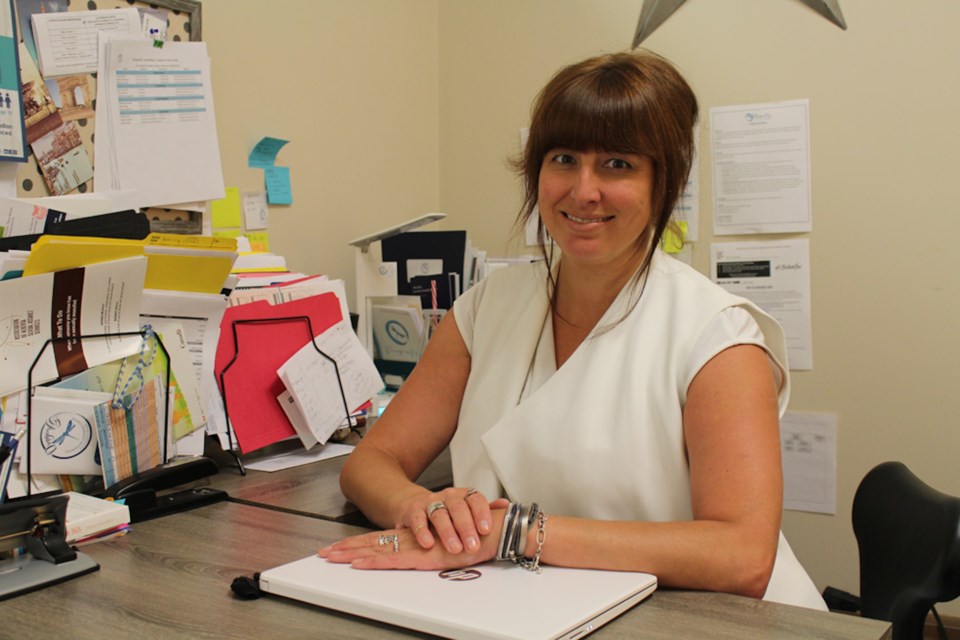BONNYVILLE – Provincial funding that the Dragonfly Counselling and Support Centre will be receiving will make them the ‘leading provider of sexual violence services in northern Alberta.’
The Government of Alberta announced on May 25 that they were investing $1.2-million to support survivors of sexual violence by expanding front-line supports in rural and remote communities. The Dragonfly Centre will receive $180,000 of that funding, along with an additional $35,000, to deliver their services to Wabasca/Desmarais, Slave Lake, and Smoky Lake.
Cheryl Bujold, the executive director for the Dragonfly Centre, said that will add to the 45 communities that they already serve throughout the northern part of the province.
“It’s really taking Dragonfly to be a leading provider of sexual violence services in northern Alberta,” she said, adding the funding will allow them to reach communities that have been underserved in the past.
“With 45 per cent of Albertans being impacted by sexual violence, we know that in rural communities it’s even more prevalent, therefore, it was really important for us to ensure that everyone who needs support has access to specialized sexual violence services.”
According to Bujold, the Dragonfly Centre expanding into these areas has been "a few years in development."
“We started working with these communities a couple of years ago. It was community members and service providers that came forward to demonstrate that there was a great need in their community for such sexual violence services and community members have been advocating for further support. This funding will allow us to build on that advocacy and make sure those individuals get the support (they need).”
The additional funding the Dragonfly Centre, along with the Hinton Friendship Centre, will receive is part of the province’s commitment to increase support for sexual assault services.
It will assist in bringing new services, like counselling, crisis response, and outreach supports, to areas where the supports currently aren’t available.
“Survivors of sexual violence deserve to have access to services in the community they live in,” said Bonnyville-Cold Lake-St. Paul MLA David Hanson in a statement. “This funding will help ensure people who live in our riding have access to critical supports that will help those impacted by sexual violence on their path to recovery.”
The increased rate of domestic violence and sexual assaults seen across Alberta during the COVID-19 pandemic were among the factors for Minister of Community and Social Services Rajan Sawhney when asked why the money was important for the centres.
“This regional expansion is very important because rural and remote locations in the province traditionally haven’t received this kind of support,” Sawhney told Lakeland This Week. “The Dragonfly is going to expand their services to Wabasca/Desmarais, Slave Lake, and Smoky Lake to make sure that victims of sexual assault and violence who are living there have some form of support, counselling, and outreach support.”
The Dragonfly Centre is currently doing initial community development work with the County of Smoky Lake and in the Wabasca/Desmarais area. The virtual services they’ve been providing due to the coronavirus pandemic are available to those in the communities who need it while they do work behind the scenes.
Sawhney noted a facility may not be required to reach people in rural communities who may need help and it’s all about giving them the means to speak with someone who can offer assistance.
“Even though bandwidth is always a problem in rural communities, I feel like people are engaging more virtually now than ever before just because of necessity and counselling services that are available virtually now,” she expressed. “Interestingly enough, there’s a preference from a big demographic to have supports and services available virtually as opposed to walking through a door to a facility and sitting down. It’s all about convenience. It’s all about trying to stay safe during the pandemic and being able to access supports from your kitchen table when you need them. I think we’ve learned a lot about thinking outside the box and learning how to connect and engage meaningfully with other people. We’re going to be creative as we look at the landscape to see what kind of supports are going to be available.”



